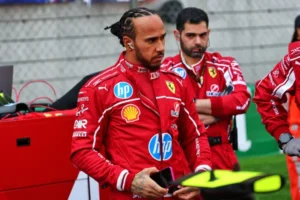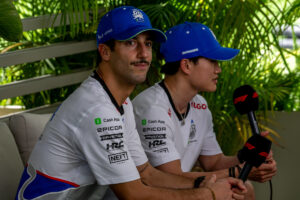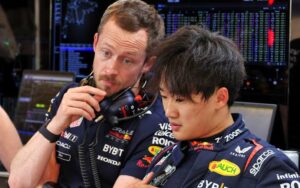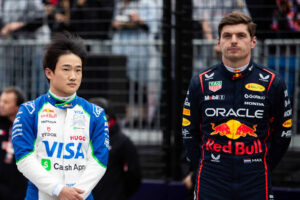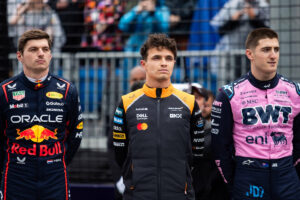BREAKING NEWS: Ex-engineer accuses Lewis Hamilton of ‘letting himself go’ when he has… Read More
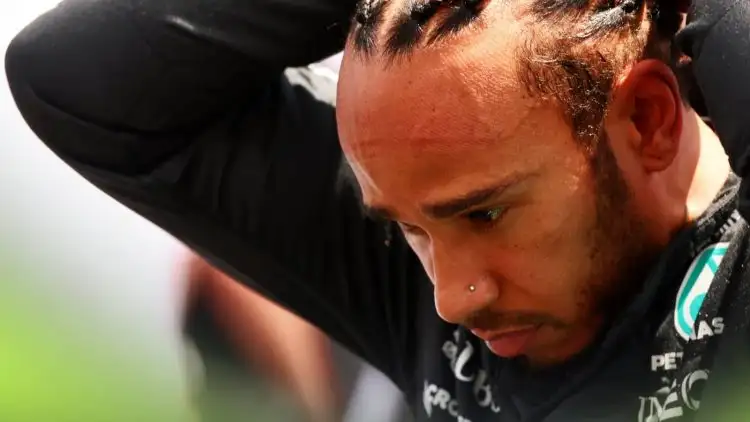
Ex-engineer accuses Lewis Hamilton of ‘letting himself go’ when he has… Read More
Former Mercedes engineer Philipp Brändle has provided a candid assessment of Lewis Hamilton, accusing the seven-time World Champion of occasionally “letting himself go” during races where he has no chance of winning. Brändle, who worked closely with Hamilton as an aerodynamics engineer at Mercedes, believes this tendency contrasts with Hamilton’s exceptional performance when victory is within reach. He views this inconsistency as both a strength and a weakness in Hamilton’s racing career.
Hamilton, who recently ended a 945-day winless streak with a triumphant victory at the British Grand Prix at Silverstone, followed by another win at the Belgian Grand Prix at Spa, has faced significant challenges over the past two seasons. The transition to F1’s ground-effect regulations in 2022 and 2023 left Mercedes struggling to find their footing, resulting in a period of frustration for the 39-year-old driver. However, these recent wins have brought Hamilton back to the top step of the podium, demonstrating his ability to excel when given the right opportunities.
Brändle, in an interview with the German outlet Motorsport-Total, praised Hamilton’s ability to “drive at 200 per cent” when the chance of winning is on the table. However, he expressed disappointment that Hamilton tends to let his performance drop when he feels the car isn’t competitive. “If he has the feeling that the car isn’t running well, that he somehow has no chance of winning the race, then unfortunately he lets himself go a bit, which is a shame,” Brändle remarked.
Despite this critique, Brändle acknowledged Hamilton’s unparalleled natural talent and feel for the car, comparing him to another F1 legend, Michael Schumacher. According to Brändle, Hamilton’s exceptional sense of the car’s behavior allows him to detect even the slightest issues while driving at high speeds, a skill that sets him apart from other drivers. This natural ability compensates for what Brändle perceives as a relative lack of technical maturity in Hamilton compared to teammates like George Russell or former rival Nico Rosberg.
Brändle specifically highlighted Hamilton’s tyre management skills, calling him a “tyre whisperer” who can manage his tyres better than most on the grid. He referenced Hamilton’s victory at the 2019 Hungarian Grand Prix as a prime example of this ability. In that race, Hamilton’s late switch to a two-stop strategy allowed him to chase down and ultimately overtake Red Bull’s Max Verstappen, showcasing his remarkable skill in tire conservation and race strategy.
“What characterises Lewis is simply his incredible feel for the car,” Brändle explained. “He feels the car like no other… He can simply judge things brutally well.” This intuitive connection with the car, combined with his strategic racecraft, has been a hallmark of Hamilton’s long and successful career in Formula 1.
Brändle’s comments come amid changes within the Mercedes team, with Hamilton’s long-serving race engineer, Peter Bonnington, being promoted to head of race engineering. Bonnington, who has been a key figure in Hamilton’s success over the years, will continue working with the driver until the end of the 2024 F1 season. This period is expected to mark the end of an era for Hamilton at Mercedes, as he is set to join Ferrari on a multi-year contract.
As Hamilton looks ahead to new challenges with Ferrari, Brändle’s reflections offer a balanced perspective on the driver’s career. While Hamilton’s natural talent and race-winning mentality have led to historic achievements, Brändle’s critique suggests that maintaining consistent performance, even in less competitive circumstances, could be a key area for improvement as Hamilton prepares for the next phase of his journey in Formula 1.
Brändle’s assessment of Hamilton paints a picture of a driver who thrives on the thrill of competition but may struggle to maintain peak performance when victory seems out of reach. Yet, his extraordinary skills and feel for the car remain the cornerstone of his success, ensuring that he continues to be a dominant force in the sport.

